White Sun of the Desert (Russian: ????? ?????? ???????, translit. Beloye solntse pustyni) is a 1970 'Eastern' or Ostern film of the Soviet Union.
| White Sun of the Desert | |
|---|---|
| Directed by | Vladimir Motyl |
| Produced by | Experimental Studio of Mosfilm |
| Written by | Valentin Yezhov Rustam Ibragimbekov |
| Starring | Anatoly Kuznetsov Spartak Mishulin Pavel Luspekaev |
| Music by | Isaak Schwarz (song lyrics by Bulat Okudzhava) |
| Cinematography | Eduard Rozovsky |
| Distributed by | Lenfilm Mosfilm |
Release date |
|
Running time | 85 min |
| Country | Soviet Union |
| Language | Russian |
Its blend of action, comedy, music and drama, as well as memorable quotes, made it highly successful at the Russian box-office, and it retains high domestic approval. Its main theme song, "Your Noble Highness Lady Fortune" (???? ??????????, ??????? ?????, music: Isaak Schwarz, lyrics: Bulat Okudzhava, performed by Pavel Luspekaev) became a hit. The film is watched by cosmonauts before most space launches as a good luck ritual.
Screenplay
The setting is the east shore of the Caspian Sea (modern Turkmenistan) where the Red Army soldier Fyodor Sukhov has been fighting the Civil War in Russian Asia for a number of years. The movie opens with a panoramic shot of a bucolic Russian countryside. Katerina Matveyevna, Sukhov's beloved wife, is standing in a field. Awakening from this daydream, Sukhov is walking through the Central Asian desert – a stark contrast to his homeland. He finds Sayid buried in the sand. Sayid, an austere Central Asian, will come to Sukhov's rescue in sticky situations throughout the movie. Sukhov frees Sayid, and they strike a friendly but reticent relationship. While traveling together they are caught up in a desert fight between a Red Army cavalry unit and Basmachi guerrillas. The cavalry unit commander, Rakhimov, leaves to Sukhov the harem, which was abandoned by the Basmachi leader Abdullah, for temporary protection. He also leaves a young Red Army soldier, Petrukha, to assist Sukhov with the task, and proceeds to pursue the fleeing Abdullah.
Sukhov and women from Abdullah's harem return to a nearby shore village. There, Sukhov charges the local museum's curator with protecting the women, and prepares to head home. Sukhov hopes to "modernize" the wives of the harem, and make them part of the modern society. He urges them to take off their burqa and reject polygamy. The wives are loath to do this, though, and as Sukhov takes on the role of protector, the wives declare him their new husband.
Soon, looking for a seaway across the border, Abdullah and his gang come to the same village and find Abdullah's wives. Sukhov is bound to stay. Hoping to obtain help and weapons, Sukhov and Petrukha visit Pavel Vereschagin, a former Tsar's customs official. Vereschagin warms to Petrukha who reminds him of his dead son, but after discussing the matter with his nagging wife, Vereschagin refuses. Sukhov finds a machine gun and a case of dynamite that he plants on Abdullah's ship. Meanwhile, Abdullah has confronted his wives, and is preparing to punish them for their "dishonor", as they did not kill themselves when Abdullah left them. Sukhov manages to capture and lock Abdullah as a hostage, but after he leaves, Abdullah convinces Gyulchatai, the youngest wife of the harem, to free him and then kills Gyulchatai and Petrukha.
The museum curator shows Sukhov an ancient underground passage that leads to the sea. Sukhov and the women of the harem attempt to escape through the passage, but on arriving at the seashore they are impelled to hide in a large empty oil tank. Abdullah discovers that and plans on setting the oil tank on fire.
Enraged at the cold-hearted murder of Petrukha, Vereschagin decides to help Sukhov and takes Abdullah's ship. Sayid also helps Sukhov, and together they fend off Abdullah's gang. Vereschagin, unaware of the dynamite on the ship and not hearing Sukhov's shouted warnings, tragically dies on the exploding ship.
Sukhov kills Abdullah and his gang, and returns the harem to Rakhimov. He then begins his journey home on foot, having refused a horse since a horse is merely "a nuisance". Whether Sukhov will make it home to his beloved wife is unclear: the revolution is not over in Central Asia, and an exemplary Red Army soldier like Sukhov may well be needed.
- Anatoly Kuznetsov as Fyodor Ivanovich Sukhov – a Red Army soldier, who returns home on foot through the desert after recovering in a hospital from wounds sustained in the war. He shows much wisdom and skill in his actions and a gentle human side in his graphical dreams, in which he mentally writes letters to his beloved wife.
- Georgi Yumatov was chosen for the role, but was dismissed for a drunken brawl right before the shooting. Therefore, Motyl called for Kuznetsov, who was the second choice during the selection.
- Pavel Luspekaev as Pavel Vereschagin – a former tsarist customs official. Vereschagin lives a lonely life as the only Russian, along with his wife, in a remote village. The walls of his house are covered with pictures of the military campaigns where he was awarded and wounded. The Civil War has left him without an official job and a place to go. He is a big man and a straightforward person with a tendency for alcoholism due to the nostalgia for his past. He has an arsenal of weapons that brings both conflicting parties (Sukhov and Abdullah's men) to his house at some point in the film. Initially neutral, he eventually takes the side of Sukhov.
- This was Luspekaev's last role. A World War II veteran and an experienced stage actor, both of his feet were amputated in the 1960s due to past injuries. Given Luspekaev's condition, Motyl wrote a script for a man on crutches. Luspekaev refused, arguing that his character should appear not as a cripple, but as a strong person who died prematurely. While filming, he walked on prosthetic legs and had to take regular rests due to pain. He died in 1970.
- Spartak Mishulin as Sayid – a skilled man of few words. He seeks revenge on Dzhavdet, a Basmachi gang leader who killed his father, robbed his family and buried him in sand for a slow death; otherwise his motives and reactions are unclear and unexpected. For example, after Sukhov dug him out, Sayid, instead of thanking him, says, "Why did you dig me out? There will be no rest while Dzhavdet is alive." Sayid suddenly appears every now and then to help Sukhov against bandits, but when asked why, simply replies that he has "heard shooting," giving an impression that he just seeks Dzhavdet via any armed conflict nearby. His relationship with Sukhov is well described by the following dialogue:
Sayid – Now, leave. You can't stay alone.
Sukhov – I can't. Abdullah will kill the women.
Sayid – Abdullah will kill you. These are his wives. In half an hour it will be too late. I must leave.
Sukhov – I counted on you.
Sayid – If I get killed, who will take revenge on Dzhavdet?
Sukhov – I counted on you, Sayid.
- In contrast with Luspekaev, this was one of the first movie roles for Mishulin, although he was previously active as a TV and stage actor.
- Kakhi Kavsadze as Abdullah – a cunning Basmachi leader with no respect for human life. Both he and Sayid originate from poor families, and their fathers were friends. However, contrary to Sayid, Abdullah took the path of banditry.
- Kavsadze, a Georgian by nationality, fit very well into the role of an Asian gang leader. However, he had never ridden a horse, while his character was supposed to be a keen horse rider. He never actually rides in the film, but only sits on a horse, or even on the shoulders of an assistant.
- Nikolai Godovikov as Petrukha – a young Red Army soldier. He attempts to court Gyulchatai, aiming to start a family.
- Coincidentally, Godovikov started dating Denisova (one of the actresses who played Gyulchatai) after filming.
- Raisa Kurkina as Nastasia, Vereschagin's wife – Vereschagin's life partner, a homemaker who balances his mental instability.
- Galina Luchai as Katerina Matveyevna, Sukhov's wife – she appears in the film only through Sukhov's dreams, to elaborate his character.
- Abdullah's wives
- Alla Limenes – Zarina
- Tatyana Krichevskaya, Galina Dashevskaya and Galina Umpeleva as Dzhamilya
- Zinaida Rakhmatova as Gyuzel
- Svetlana Slivinskaya as Saida
- Velta Chebotarenok (Deglav) as Khafiza
- Tatyana Tkach as Zukhra
- Lidiya Smirnova as Leila
- Zinaida Rachmatova as Zulfia
- Tatiana Fedotova and Tatiana Denisova as Gyulchatai – the youngest and most curious wife of Abdullah. She is the only wife who interacts with outsiders, i.e., Sukhov and Petrukha.
Most of Abdullah's wives were portrayed by non-professional actors. As they wore burqas most of the time, they were often replaced by other women, and even by male soldiers from the military unit stationed nearby. Motyl shot a few semi-nude scenes involving some of the wives for character development, but those scenes were cut by censors.
- Honorifics
The script makes use of different levels of honorifics in the Russian language. All locals are known only by their first names. Vereschagin is called by his last name by strangers and by his first name by his wife. Sukhov is called by his last name, often with an addition of a symbolic title "Krasnoarmeets" (Red Army Soldier) or "Tovarishch" (Comrade). Vereschagin initially also calls him Sukhov, but by the end of the film warms up to the less formal and more respectful "Fyodor Ivanovich".
Weaponry is explicitly used to characterize and develop the characters. Sayid is found barehanded in the beginning; he acquires all his weapons through the film and uses them skillfully. Sukhov gives him a knife, which Sayid later throws to kill an attacker. He shoots a carbine taken from a bandit, whom he strangled using rope as a lasso (while helping Sukhov). His skills in riding are demonstrated when he jumps on a horse, back first, while walking backwards and keeping his enemy at a gunpoint. He then slowly rides away, sitting backwards on the horse.
Vereschagin, despite having an arsenal of small arms, fights barehanded, which accentuates his brute force and straightforwardness. Both Sukhov and Abdullah use handguns rather than rifles, as appropriate to their leading, officer-like positions. Sukhov carries a Nagant M1895 revolver, a personal gift from brigade commander M. N. Kovun, whereas Abdullah uses a Mauser C96. To deal with the Abdullah's gang, Sukhov fetches and fixes a machine gun. Petrukha has a rifle that jams and never fires when needed. Abdullah's gang members carry carbines and long knives characteristic of the time and region.
The director, Vladimir Motyl, said such films as Stagecoach and High Noon influenced him and he has described the film as being a "cocktail" of both an adventurous Russian folktale and a western. Initially several directors, including Andrei Tarkovsky and Andrei Konchalovsky, were offered the film but they turned it down, Motyl claims, for two main reasons. Firstly, Konchalovsky thought only American actors could pull off the part of a lead role in a western, and secondly the screenplay was considered weak. Motyl also initially turned down the offer, but then found himself in a no-choice situation, as he would not be given any other film to direct.
After the first version of the film was turned down by Mosfilm, Valentin Yezhov and Rustam Ibragimbekov were assigned to improve the script. Ibragimbekov was chosen by his nationality as an expert on the East, though in reality he was raised in Russia and never been in the region. A war veteran told Yezhov a story of a harem abandoned by a Basmachi leader on a run, which became the pivot of the new script. Further rewriting came from Motyl after he replaced Konchalovsky as director. Motyl completely reshaped and put forward the character of Veresch
Watch movie White Sun Of The Desert online on Amazon
Watch movie White Sun Of The Desert online
Watch The Movie On PrimeShootout At Lokhandwala Full HD Movie Download
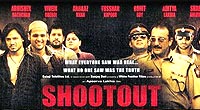
Tahaan Full HD Movie Download

Char Dham Full HD Movie Download
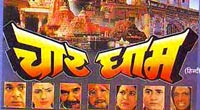
Naami Chor Full HD Movie Download
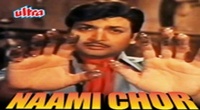
Bheja Fry 2 Full HD Movie Download
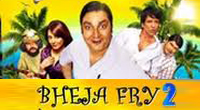
Loafer (1973) Full HD Movie Download
.jpg)
Haunted Full HD Movie Download

Vishwanath: The Power Full HD Movie Download
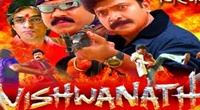
Chadi Jawani Budhe Nu Full HD Movie Download
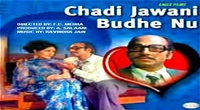
Illarikam Full HD Movie Download
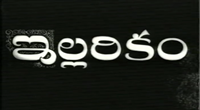
Grand Mothers Stories Full HD Movie Download
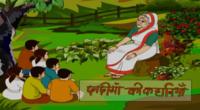
Embryo Full HD Movie Download

Nenja Thottu Chollu Full HD Movie Download
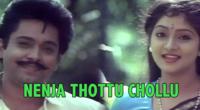
Bharath Bandh Full HD Movie Download
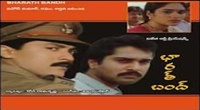
Oka Chinna Maata Full HD Movie Download
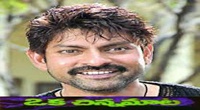
Bangaru Chilaka Full HD Movie Download
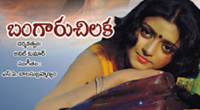
Chelleli Kapuram Full HD Movie Download
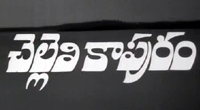
Dear Brother Full HD Movie Download
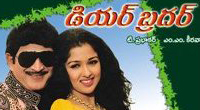
Ayyappa Swamy Mahathyam Full HD Movie Download
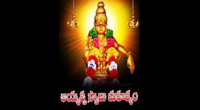
Street Fighter Full HD Movie Download
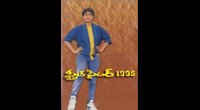
Neramu Siksha Full HD Movie Download
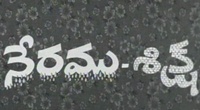
Download latest Movie from bollywood
- 1> baaghi 3
- 2> THE SKY IS PINK MOVIE FULL STORY AND REVIEW
- 3> Luka Chuppi
- 4> TO ALL THE BOYS I’VE LOVED BEFORE
- 5> Kabir Singh
- 6> Street Dancer 3D
- 7> Simmba
- 8> Gone Girl
- 9> The Girl Who Lived
- 10> Ludo
- 11> DILWALE DULHANIA LE JAYENGE
- 12> GUILTY
- 13> The Godfather
- 14> Adventures of Rusty
- 15> Sooryavanshi
- 16> Satyameva Jayate 2
- 17> Thappad
- 18> Bhool Bhulaiyaa 2
- 19> KGFChapter 2
- 20> Mardaani 2
- 21> Pinjar
- 22> Shivaji maharaj
- 23> Ek Villian 2
- 24> Hungama 2
- 25> Divergent
- 26> Mumbai Saga
- 27> The Internship
- 28> HIT (telugu)
- 29> Panga
- 30> The perfect date
- 31> 16 December
- 32> Gopala Gopala (Telugu)
- 33> Brahmastra
- 34> Gangubai Kathiawadi
- 35> Manmadhudu
- 36> Nenu local
- 37> Mahanati
- 38> Shatamanam bavathi
- 39> Lagaan
- 40> After
- 41> MOM
- 42> Shamshera
- 43> Raguvaran BTech
- 44> Khakee
- 45> The villain
- 46> OM
- 47> Mr. perfect
- 48> Bueatifull mind
- 49> Hichki
- 50> Gabbar Singh
- 51> Jogi
- 52> Before Sunrise
- 53> Before Sunset
- 54> Before Midnight
- 55> The Big Bull
- 56> Top Gun: Maverick
- 57> The Purge
- 58> The Sky is Pink
- 59> Laxmmi Bomb
- 60> Sadak 2
- 61> Sufna
- 62> Prithviraj
- 63> PK
- 64> Coolie No 1(2020)
- 65> Black Widow
- 66> Dear Zindagi
- 67> Dil Bechara
- 68> PHIR HERA PHERI
- 69> WAR
- 70> Dostana
- 71> RRR: Roudram Ranam Rudhiram
- 72> Maidan
- 73> Dabbang 3
- 74> Chhalaang
- 75> life as we know it
- 76> SherShaah
- 77> Sandeep Aur Pinky Faraar
- 78> Event Horizon
- 79> 83
- 80> Radhe: Your Most Wanted Bhai
- 81> Gunjan Saxena: The Kargil Girl
- 82> Mr India
- 83> Vivah
- 84> Anokha Bandhan
- 85> Ghost
- 86> Bhoot: Part One - The Haunted Ship
- 87> Haseen Dilruba
- 88> Laal Singh Chaddha
- 89> Qismat
- 90> Rajput
- 91> Drive
- 92> Dil Chahta Hai
- 93> Dil Ki Baazi
- 94> Dil Ka Rishta
- 95> Teesri Manzil
- 96> Dil
- 97> Love Aaj Kal
- 98> Khaali Peeli
- 99> Bunty Aur Babli 2
- 100> Atrangi Re
- 101> Gulabo Sitabo
- 102> Jodi
- 103> Suraj Pe Mangal Bhari
- 104> Deewana
- 105> Attack
- 106> Sardar Udham Singh
- 107> Toofan
- 108> THE LOVEBIRDS
- 109> Jersey
- 110> Ginny Weds Sunny
- 111> Thalaivi
- 112> Shiddat
- 113> Angels vs Zombies
- 114> Koi Mil Gya
- 115> Thank God
- 116> Bhuj: The Pride of India
- 117> Hum Aapke Hain Kaun
- 118> The Platform
- 119> Bird Box
- 120> Roohi Afzana
- 121> Torbaaz
- 122> Nikamma
- 123> World War Z
- 124> Extraction
- 125> Train to Busan
- 126> Life of Pi
- 127> SHAADI MEIN JROOR AANA
- 128> Himmat Aur Mehnat
- 129> To All The Boys: P.S. I Still Love You
- 130> Mimi
- 131> Good Newwz
- 132> Shubh Mangal Zyada Saavdhan
- 133> Raabta
- 134> Harry Potter and the Philosopher's Stone
- 135> Harry Potter and the Chamber of Secrets
- 136> Chhapaak
- 137> War of the Worlds
- 138> Harry Potter and the Prisoner of Azkaban
- 139> Harry Potter and the Goblet of Fire
- 140> MURDER MYSTERY
- 141> Shakuntala Devi
- 142> Bachchan Pandey
- 143> Jayeshbhai Jordar
- 144> Sheer Qorma
- 145> Saina
- 146> 'O' Pushpa I hate tears
- 147> Kedarnath
- 148> MS Dhoni The Untold Story
- 149> Chhichhore
- 150> Badhaai Ho
- 151> Unstoppable
- 152> Oz the Great And Powerful
- 153> The Girl on the Train
- 154> Haathi Mere Saathi 2020
- 155> The Conjuring: The Devil Made Me Do It
- 156> Gandhi Se Pehle Gandhi
- 157> The Song of Scorpions
- 158> Srimanthudu
- 159> Hello Guru Prema Kosame
- 160> Beauty and The Beast
- 161> Black Panther
- 162> Charlie and the Chocolate Factory
- 163> Bole Chudiyan
- 164> Fidaa
- 165> Duvvada Jagannadham
- 166> Bruce Lee: The Fighter
- 167> Hyper
- 168> Yaara
- 169> Red (2020)
- 170> Shivam
- 171> That Is Mahalakshmi
- 172> Nishabdham
- 173> Aashram 2020 web series
- 174> Laxmii
- 175> Mismatched
- 176> STUDENT OF THE YEAR 2
- 177> NAIL POLISH
- 178> Ramprasad Ki Tehrvi
- 179> KAAGAZ
- 180> 12 o Clock
- 181> The Power
- 182> bolo hau
- 183> Tribhanga
- 184> JAMUN
- 185> Madam Chief Minister
- 186> Maasaab
- 187> Aadhaar
- 188> Tanhaji
- 189> Bhaagi 3
- 190> Bhootnath
- 191> MALANG
- 192> Jai Mummy Di
- 193> Haathi Mere Saathi 2021
- 194> Shakeela
- 195> Unpaused
- 196> Annayya
- 197> Vamsoddharakudu
- 198> Mrugaraju
- 199> Narasimha Naidu
- 200> Sankranti
- 201> Manasu Maata Vinadhu
- 202> Anjaane
- 203> Apaharan
- 204> Bachke Rehna Re Baba
- 205> Bewafaa
- 206> Roohi
- 207> Radhe
- 208> Zindagi Khoobsoorat Hai
- 209> Yeh Mohabbat Hai
- 210> Yeh Kya Ho Raha Hai?
- 211> The Tomorrow War
- 212> DehradunDiary
- 213> Meri Shaadi Karaoo
- 214> Matruu Ki Bijlee Ka Mandola
- 215> No One Killed Jesica
- 216> Aag Ka Goola
- 217> Eight Million Dollars
- 218> Three Hundred
- 219> Cats and Dog
- 220> Decoy
- 221> Gold Rush
- 222> You Have Got Mail
- 223> Final Destination three
- 224> Tofan
- 225> Jungle
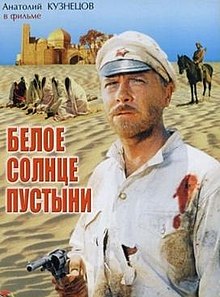 Story of movie White Sun Of The Desert :
Story of movie White Sun Of The Desert : 